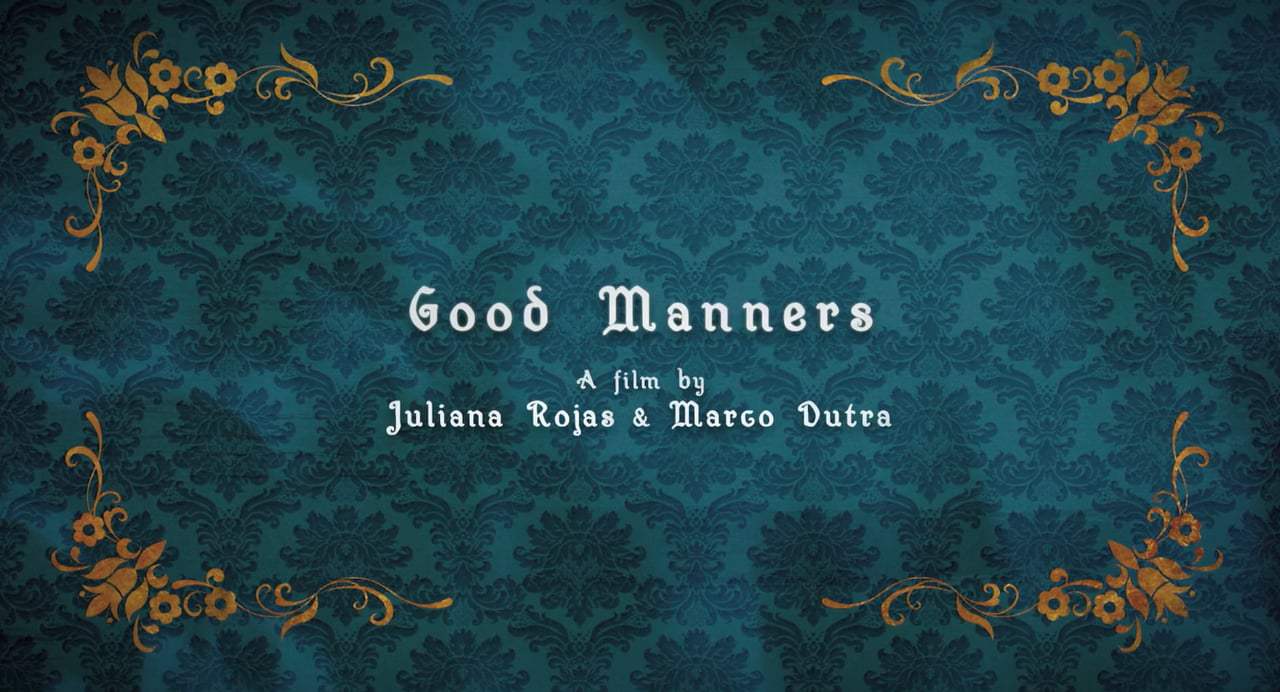Good Manners(Marco Dutra, 2017): Brazil| France
Reviewed by Zinan He. Viewed at AFI Fest 2017.

Good Manners is written/directed by Juliana Rojas and Marco Dutro, who previously worked together on the 2011 film Hard Labor. The 136 min movie is love, horror, and thrill about the lycanthrope and little romance between two women. Though the movie has the fictional and imaginative character, it has taken the real-world issue very carefully. Good manner is a terrific movie which is hard to describe in words; one must watch to feel the thrill. It tells us the story of Clara, a nurse living on the outskirts of Sao Paulo, who is taken on by the rich and fascinating Ana. Clara must take care of Ana and the baby through pregnancy and beyond. The Movie was awarded Special Jury Prize at Locarno International Film Festival.
Clara (Isabel Zuaa) a black independent, clear-minded women looking desperately for a job. At the beginning of the movie, she reaches an apartment to interview for the job as a nanny for Ana (Weissberg), wealthy women who is single and pregnant. Clara gets the job; soon the two women developed a close relation. Meanwhile, Clara finds out that Ana sleepwalks and eat lots of meat during full moon nights. Those scenes in the film have given the little glimpse of the whole movie. The baby, of course, is a werewolf which gets active in full moon light. The writers have created two contrasting characters which make the film even more fascinating.
The major turning point of the film is where baby Joel (Miguel Lobo) bloody and unnatural birth. The film from the romance between two women turns into the love of mother and child struggle with the monster inside. Ana lives a wealthy life that resembled something like a fairy tale, but her life was miserable and lonely. Clara becomes the source of love and strength for Ana. But as Ana’s pregnancy unfolds, we witness a ferocious scene. The baby rips Ana as he enters the world and the childbirth ends with the dramatic and violent death of Ana. Once again, Claire comes to the rescue of Ana’s family. The bond formed between the two women compels Clara who decides to take care of the child as her own and names him Joel in the remembrance of Ana.
Although Clara is poor, her house is luxurious with love, and she leaves no stone unturned to make Joel happy and healthy. Many people in the society turn keen eyes because of the color difference between them; the mother being black while the child is white. In spite of criticism from the community, Joel leads a happy life. To the eye of everyone Joel and Clara live normal lives but this because of active measures were taken by Clara to protect Joel. She keeps him in the dark of his true nature, and during full moon she makes him stay in a secret room chained away. She doesn’t tell him the reason, for doing so. However, Joel is slowly growing up and reaches the age where he is curious about many things. He wants to know about his parentage and the reason he has to be chained.
The movie beautifully depicts the difference in lifestyles of the two women with the brilliant use of color and cinematography. The film is surprisingly beautiful and sometimes very captivating. The first half is undoubtedly engaging than the second. The movie is certainly genre-defying as it shifts from somewhat romantic nature to sudden moments of horror that seem all too real. The film also excellently depicts the view of Brazilian society, and the monster element can be used as a metaphor for the minorities that people have labeled differently. Although two hours long, the movie is undoubtedly engaging and worth a watch.
About this entry
You’re currently reading “Good Manners(Marco Dutra, 2017): Brazil| France,” an entry on Student Film Reviews
- Published:
- 11.18.17 / 9pm
- Category:
- AFI Filmfest 2017, Films
No comments
Jump to comment form | comments rss [?]